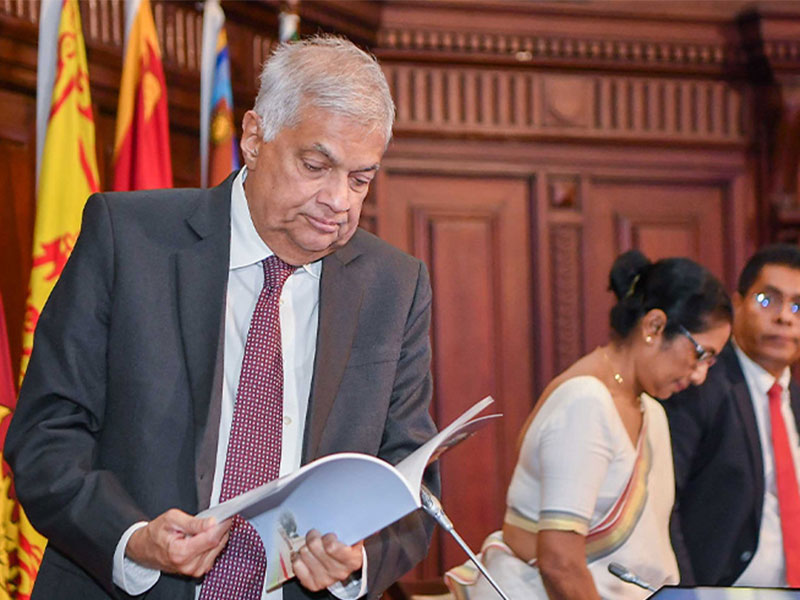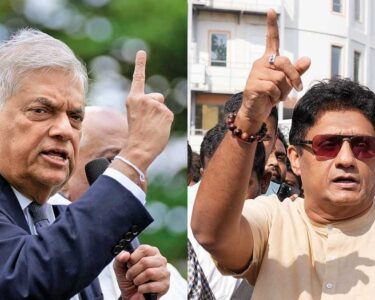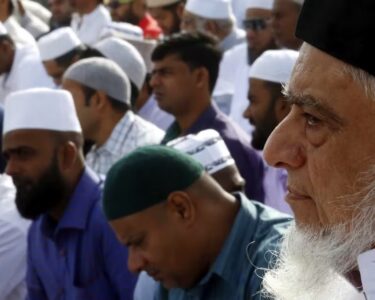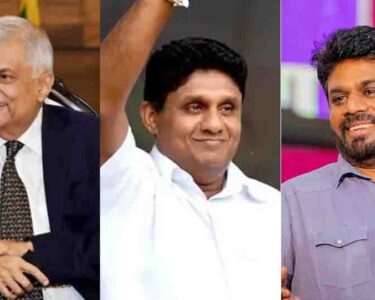Sri Lanka is the only country in Asia where democracy is completely protected, according to President Ranil Wickremesinghe,
President Ranil Wickremesinghe conceived the program that allows school students to visit important locations in Colombo, including the President’s Office.
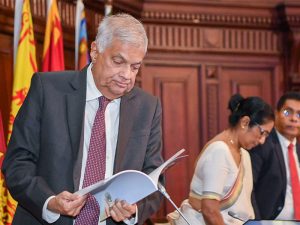
The National Student Parliamentarians were invited by the President to offer their opinions and suggestions about the political climate of the country. He also gave them permission to tour the Presidential Secretariat’s Cabinet meeting room.
President Ranil Wickremesinghe stated the following when addressing the National Student Parliament:
Sri Lanka is special in that it is a country that has fully protected democracy. During the colonial era, democracy in our nation steadily developed. The Legislative Assembly was established in 1833, which was a momentous occurrence even though there was no vote that year. The governor, however, nominated a number of Sri Lankans to the legislature. The opportunity to choose a member of parliament was not granted to a Sri Lankan until 1912. Nevertheless, women were not then allowed to vote. Five thousand or so were entitled to vote, mostly on the basis of property and education.
Sri Lanka made history in 1931 when it became the first nation in Asia to provide universal suffrage to all men and women over the age of 21.voting rights. Since then, Sri Lanka continues to be the only country in Asia where the opposition has not been suppressed by the ruling party. We have maintained democracy in spite of many flaws, despite opposition and difficulties.
Subsequently, under the Donamore system, Sri Lanka acquired seven ministerial roles, three ministries were initially held by English. Over time, Sri Lankans assumed these positions. The council also appointed seven committees, each with its chairperson, functioning akin to ministries. Notably, political parties were absent during this period. Amidst World War conditions, all non-military affairs were delegated to Sri Lanka as it engaged with Britain, America, and the Soviet Union
Three of the seven ministries that Sri Lanka later gained under the Donamore system were first handled by English people. Sri Lankans eventually took up these roles. In addition, the council appointed seven committees that functioned similarly to ministries, each with a chairperson. Political parties were conspicuously absent during this time. During the World War, Sri Lanka was given full authority over all non-military matters while it interacted with the US, UK, and USSR.
Solebury Constitution.
We became free with the Solebury Constitution. The identical structure you are in right now was designed to hold the Constituent Assembly. The Donmore Commission was then gathered at these same premises and subsequently reconstituted as the People’s Council. This was also the location of the Senate and the House of Commons.
This organization changed its name to the National State Council when Sri Lanka became a republic in 1972. I was appointed to the National Assembly in 1977. There are currently four serving members of Parliament who were part of the National Assembly. 1970 saw the election of Mr. Vasudeva Nanayakkara and former president Mahinda Rajapaksa. In 1977, Mr. R. Sampanthan and I also joined parliament. 1977 saw the implementation of the executive presidential system in the nation. This building was later converted into the President’s Office once we moved to the new Parliament building in 1982.
In the face of international wars and domestic strife, Sri Lanka has persistently upheld its democratic principles, guaranteeing the uninterrupted operation of the opposition and the government. This strategy has made it easier for other points of view to be spoken, which emphasizes how crucial it is to protect our parliamentary system.
Mauritius and Sri Lanka are the only two nations in all of Asia and Africa to have accomplished this achievement. In light of this, it is essential that we all work together to protect this accomplishment. Only Switzerland, Sweden, Ireland, and Great Britain have continuously maintained democracy in Europe. Most of the nations that support democracy now were ruled by Adolf Hitler.



